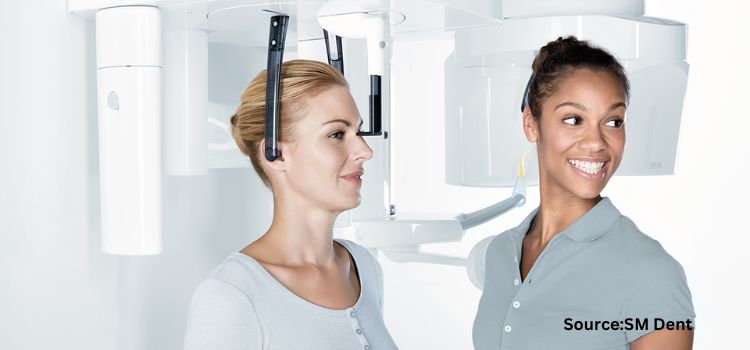
Canada Disabled and Elderly Assistive Device Market by Type (Mobility Impairments, Hearing Impairments, Visual Impairments, Cognitive Impairments, and Self-Care), and by End User (Hospitals, Elderly Nursing Homes, Home Care, and Other End User) –Opportunity Analysis and Industry Forecast, 2024 – 2030
Industry: Healthcare | Publish Date: 19-Mar-2025 | No of Pages: 152 | No. of Tables: 117 | No. of Figures: 62 | Format: PDF | Report Code : HC1069
Canada Disabled & Elderly Assistive Device Market Overview
The Canada Disabled & Elderly Assistive Device Market size was valued at USD 2.19 billion in 2023, and is predicted to reach USD 5.16 billion by 2030, at a CAGR of 12.0% from 2024 to 2030.
The disabled & elderly assistive device market refers to a wide range of products and services designed to support the aging population and individuals with disabilities in maintaining their autonomy and improving their quality of life. This market covers medical furniture, hearing aids, mobility aids and living aids, that are crucial for managing chronic conditions and ensuring safety.
Innovations in these areas are driven by the need to address the growing challenges of an aging population and the diverse requirements of individuals with disabilities, making this market integral to enhancing accessibility and wellbeing. This market is fueled by growing rate of disabled individuals, rapid technological advancements, and evolving regulatory landscapes, the assistive device industry prioritizes inclusivity and continuously adapts to meet the ever-changing needs of its diverse user base.
Government Initiatives and Regulatory Frameworks Propels the Canada Disabled & Elderly Assistive Device Market Growth
Government programs and regulatory frameworks are instrumental in driving the growth of the Canada disabled & elderly assistive device market trends. Initiatives such as the Canada Pension Plan Disability Benefit and various provincial assistive device schemes provide essential funding, thereby improving the accessibility of these devices. Legislative measures including the Accessibility for Ontarians with Disabilities Act (AODA) establish standards for integration and accessibility across both public and private sectors.
According to the Portulans Institute report 2023, Canada’s Governance pillar that includes regulatory quality, ICT regulatory environment, regulation of emerging devices, and others scored 86.48 out of 100. These combined efforts support market expansion by facilitating development, ensuring affordability, and promoting widespread adoption of assistive devices throughout the country.
The Rapid Growth of Aging Population Fuels for the Canada Disabled & Elderly Assistive Device Market Demand
The demographic shift towards an aging population is a significant driver of the increasing demand for assistive devices. As more Canadians enter older age brackets, there is a growing need for devices that support independent living and enhance the quality of life. Innovations in mobility aids, home healthcare devices, and sensory supports are crucial in meeting the diverse needs of seniors, significantly contributing to the disabled & elderly assistive device market growth.
The Regulatory Challenges Hinders the Growth of the Market
The market for assistive devices for the disabled and elderly faces significant regulatory challenges that restrain growth and innovation. Regulatory bodies such as the Health Canada, and other national agencies impose stringent approval processes, requiring assistive products, especially medical devices, to undergo extensive testing and certification before entering the market. This ensures safety and efficacy but delays product launches and elevate costs significantly. These factors collectively pose substantial barriers, limiting the availability of assistive devices in the market.
The Integration of AI Into Assistive Device is Expected to Create Ample Growth Opportunity for the Market
The integration of assistive technology such as artificial intelligence (AI) and advanced sensors into disabled & elderly assistive devices represents a transformative leap towards a future where these devices are not only more advanced but also more personalized and accessible than ever before.
AI enables assistive devices to evolve beyond static solutions, becoming dynamic and adaptable to the specific needs of each user. Through machine learning algorithms, these devices learn from user interactions, continuously improving their functionality and responsiveness.
Competitive Landscape
The promising key players operating in Canada disabled & elderly assistive device industry includes Savaria Corporation, HumanWare Group, Invacare Corporation, Stryker Corporation, Elitac Wearables, Handicare Canada, Sunrise Medical Canada Inc., Motion Composites, Medline Canada, Drive DeVilbiss Healthcare Canada, Maple Leaf Wheelchair, Travel Buggy, Oticon, Amplifon, Phonak Canada Ltd, and others.
Canada Disabled & Elderly Assistive Device Market Key Segments
By Type
-
Mobility Impairments
-
Wheelchairs
-
Walkers and Rollators
-
Canes and Walking Sticks
-
Crutches
-
Portable Ramps
-
Others
-
-
Hearing Impairments
-
Hearing aids
-
FM System
-
Deafblind communicators for hearing
-
-
Visual Impairments
-
Screen readers
-
Optical magnifiers
-
Smart phones for vision
-
Braille writing equipment
-
Talking Devices
-
-
Cognitive Impairments
-
Self-Care
-
Shower Chairs
-
Grab-bars/handrails
-
By End User
-
Hospitals
-
Elderly Nursing Homes
-
Home Care
-
Other End Users
Key Players
-
Savaria Corporation
-
HumanWare Group
-
Invacare Corporation
-
Stryker Corporation
-
Elitac Wearables
-
Handicare Canada
-
Sunrise Medical Canada Inc.
-
Motion Composites
-
Medline Canada
-
Drive DeVilbiss Healthcare Canada
-
Maple Leaf Wheelchair
-
Travel Buggy
-
Oticon
-
Amplifon
-
Phonak Canada Ltd
REPORT SCOPE AND SEGMENTATION:
|
Parameters |
Details |
|
Market Size Value in 2023 |
USD 2.19 billion |
|
Revenue Forecast in 2030 |
USD 5.16 billion |
|
Value Growth Rate |
CAGR of 12.0% from 2024 to 2030 |
|
Analysis Period |
2023–2030 |
|
Base Year Considered |
2023 |
|
Forecast Period |
2024–2030 |
|
Market Size Estimation |
Billion (USD) |
|
Growth Factors |
|
|
Companies Profiled |
15 |
|
Customization Scope |
Free customization (equivalent up to 80 working hours of analysts) after purchase. Addition or alteration to country, regional, and segment scope. |
|
Pricing and Purchase Options |
Avail customized purchase options to meet your exact research needs. |

















 Speak to Our Analyst
Speak to Our Analyst





















